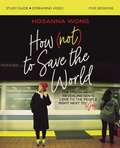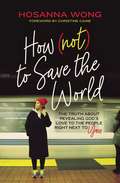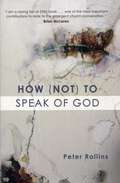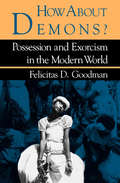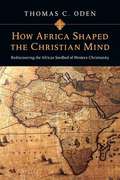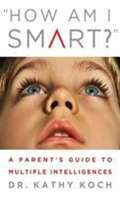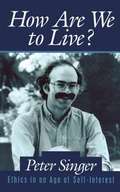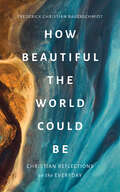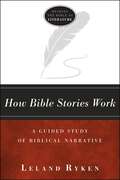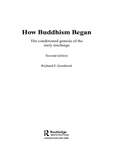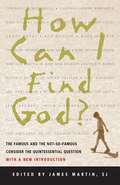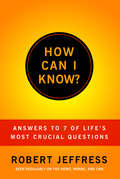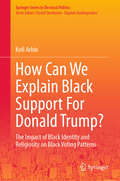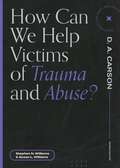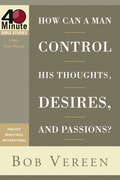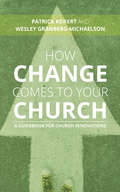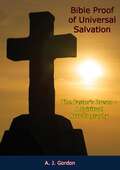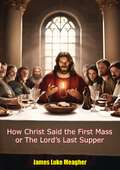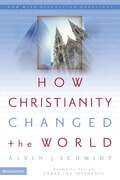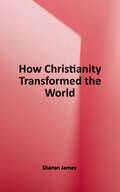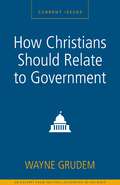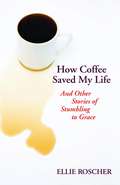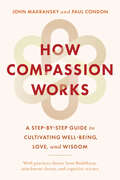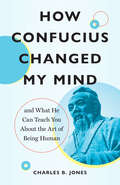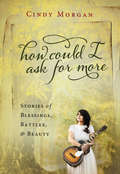- Table View
- List View
How (Not) to Save the World Bible Study Guide plus Streaming Video: The Truth About Revealing God’s Love to the People Right Next to You
by Hosanna WongDisplaying God&’s love in today&’s world.When it comes to talking about Jesus with our family members, friends, classmates, and coworkers, many of us aren't sure how to go about doing it. We don't want to come off as awkward, pushy, or weird. We wonder if we have the right answers or if we'll say the wrong thing. As a result, we sometimes give up on sharing about Jesus altogether.In this five-session study, bestselling author and spoken-word artist Hosanna Wong crushes the lies that hold us back from sharing the most important story in the world. Join Hosanna in discovering what God's Word actually says about revealing His love to the people right next us, and how we are already equipped to reach those who don't know how much God loves them (yet).With honesty and humor, Hosanna will help you:Embrace your unique story to naturally talk about Jesus without being weird or pushy.Discover the three most effective steps to take when fighting for a loved one who is in a tough place.Overcome the lies that hold you back so you can step into your calling and empower people to encounter God.Heal from past hurts in the church and learn how to create the community you've longed for.This study guide has everything you need for a full Bible study experience, including:The study guide itself - video teaching notes, group discussion questions, and in-between gatherings personal Bible study sections.An individual access code to stream all five video sessions online (you don't need to buy a DVD!).Watch on any device!Streaming video access code included. Access code subject to expiration after 12/31/2027. Code may be redeemed only by the recipient of this package. Code may not be transferred or sold separately from this package. Internet connection required. Void where prohibited, taxed, or restricted by law. Additional offer details inside.
How (Not) to Save the World: The Truth About Revealing God’s Love to the People Right Next to You
by Hosanna WongDo you want to fight for the people you love and show others how valuable they are to God? There is a way, and you are more equipped than you know. Ten years ago, Hosanna Wong packed her life into suitcases and started traveling the country to talk to people about Jesus. Along the way she discovered lies she had believed that held her back from actually sharing God&’s love. Lies such asyour story is not that important,you&’re not qualified, andit would be best if you waited until everything is perfect. That&’s how not to save the world. The truth is better. Through faithfully studying God&’s Word and fumbling through her own flawed progress, Hosanna uncovered what the Bible actually says about revealing God&’s love in our everyday lives.With honesty and humor, Hosanna will help you:embrace your unique story to naturally talk about Jesus without being weird or pushy,discover the three most effective steps to take when fighting for a loved one who is in a tough place, andovercome the lies that hold you back so you can empower people to encounter a God they&’ve never known.It turns out, you can naturally share God&’s love in your everyday life. You can fight for those you love and a world Jesus loves. There is a way for every person you know to realize how valuable they are to God. You&’ve been created for it, equipped for it, and you&’re ready for it. Let&’s go!
How (Not) to Speak of God
by Peter RollinsWith sensitivity to the Christian tradition and a rich understanding of postmodern thought, Peter Rollins argues that the movement known as the "emerging church" offers a singular, unprecedented message of transformation that has the potential to revolutionize the theological and moral architecture of Western Christianity.How (not) to Speak of God sets out to explore the theory and praxis of this contemporary expression of faith. Rollins offers a clear exploration of this embryonic movement and provides key resources for those involved in communities that are conversant with, and seeking to minister effectively to, the needs of a postmodern world. "Here in pregnant bud is the rose, the emerging new configuration, of a Christianity that is neither Roman nor Protestant, neither Eastern nor monastic; but rather is the re-formation of all of them. Here, in pregnant bud, is third-millennium Christendom." —Phyllis Tickle "I am a raving fan of the book you are holding. I loved reading it. I have already begun widely recommending it. Reading it did good for my mind and for my soul. It helped me understand my own spiritual journey more clearly, and it gave me a sense of context for the work I'm involved in. In fact, I would say this is one of the two or three most rewarding books of theology I have read in ten years." —Brian McLaren, from the Foreword
How About Demons?: Possession and Exorcism in the Modern World (Folklore Today #No.467)
by Felicitas D. GoodmanThe author of the Exorcism of Anneliese Michel &“is to be commended for a stimulating and wide-reaching treatment of a compelling and much-debated subject&” (Journal of Folklore Research). As part of a series that strives to introduce new or previously unrecognized folkloric phenomena—as well as new approaches and theories that result from discovery and investigation—How About Demons? provides an overview of a topic that has for many years captured the imagination of people from all walks of life. Rich in detail derived from the author&’s fieldwork and anthropological literature, this work contemplates possession and exorcism in a holistic manner—discussing their effects on both the body and soul. How About Demons? paints a picture of possession as a usually positive experience occurring in a wide variety of cultures and religions around the globe. It also details the ritual of exorcism which is applied when things go wrong. &“Quite an interesting book.&”—Religious Studies Review &“It is by far superior to anything else on demons we have seen in the past few years.&”—The American Rationalist
How Africa Shaped the Christian Mind: Rediscovering the African Seedbed of Western Christianity (Early African Christianity Set)
by Thomas C. OdenAfrica has played a decisive role in the formation of Christian culture from its infancy. Some of the most decisive intellectual achievements of Christianity were explored and understood in Africa before they were in Europe. If this is so, why is Christianity so often perceived in Africa as a Western colonial import? How can Christians in Northern and sub-Saharan Africa, indeed how can Christians throughout the world, rediscover and learn from this ancient heritage? Theologian Thomas C. Oden offers a portrait that challenges prevailing notions of the intellectual development of Christianity from its early roots to its modern expressions. The pattern, he suggests, is not from north to south from Europe to Africa, but the other way around. He then makes an impassioned plea to uncover the hard data and study in depth the vital role that early African Christians played in developing the modern university, maturing Christian exegesis of Scripture, shaping early Christian dogma, modeling conciliar patterns of ecumenical decision-making, stimulating early monasticism, developing Neoplatonism, and refining rhetorical and dialectical skills. He calls for a wide-ranging research project to fill out the picture he sketches. It will require, he says, a generation of disciplined investigation, combining intensive language study with a risk-taking commitment to uncover the truth in potentially unreceptive environments. Oden envisions a dedicated consortium of scholars linked by computer technology and a common commitment that will seek to shape not only the scholar's understanding but the ordinary African Christian's self-perception.
How Am I Smart?: A Parent's Guide to Multiple Intelligences
by Kathy KochHas your daughter come to you in tears, asking, "Am I smart?" Or has your son wanted to know, "How smart am I?" Dr. Kathy wants children to ask an even more important question, "How am I smart?" When parents determine ways children can be smart, they'll better understand their own children's educational needs and how they learn best.
How Are We to Live?: Ethics in an Age of Self-Interest
by Peter Singerrefutes the idea that humans are by nature selfish; powerful call to live an ethical life.
How Beautiful the World Could Be: Christian Reflections on the Everyday
by Frederick Christian BauerschmidtMeditations on ordinary life as part of a larger story &“We human beings are creatures of time and space,&” writes Frederick Bauerschmidt. &“We have no choice but to find ourselves at a particular place in a particular moment.&” Fortunately, as Christians, we worship a God who became embodied and lived among us—the timeless Word who became the Word in time. Thus, it is no contradiction for us to expect to find our stories in the larger story of God&’s ongoing dealings with the world. This truth is nowhere more evident than in preaching, which, of necessity, speaks to particular occasions. Throughout these thirty-eight homilies, Bauerschmidt finds the truth of Scripture refracted through the lenses of current events from the past decade—including the coronavirus pandemic—as well as the seasons of the liturgical year and momentous individual occasions like baptisms, weddings, and funerals. His advice and examples will help preachers heed Paul&’s urging to be on point and persuasive &“in season and out of season.&” All readers will be joyfully reminded of how beautiful the world is when seen in its larger context, illuminated by the light of eternity.
How Bible Stories Work: A Guided Study of Biblical Narrative (Reading the Bible as Literature)
by Leland RykenThis is the first of a projected six-volume series called Reading the Bible as Literature (the second volume being Sweeter Than Honey, Richer Than Gold). An expert at exploring the intersection of the Bible and literature, Ryken shows pastors and students and teachers of the Bible how to appreciate the craftsmanship and beauty of biblical narrative and how to interpret it correctly. Dr. Ryken goes one step further than merely explaining the genre of story-he includes exercises to help students master this rich literary treasure.
How Buddhism Began: The Conditioned Genesis of the Early Teachings (Jordan Lectures In Comparative Religion Ser. #No. 17)
by Richard F. GombrichWritten by one of the world's top scholars in the field of Pali Buddhism, this new and updated edition of How Buddhism Began, discusses various important doctrines and themes in early Buddhism. It takes 'early Buddhism' to be that reflected in the Pali canon, and to some extent assumes that these doctrines reflect the teachings of the Buddha himself. Two themes predominate. Firstly, the author argues that we cannot understand the Buddha unless we understand that he was debating with other religious teachers, notably Brahmins. The other main theme concerns metaphor, allegory and literalism. This accessible, well-written book is mandatory reading for all serious students of Buddhism.
How Can I Find God?: The Famous and the Not-So-Famous Consider the Quintessential Question
by James MartinThis vibrant collection brings together an array of voices addressing the question of how one might approach the search for God.
How Can I Know?: Answers to Life's 7 Most Important Questions
by Robert JeffressIf we are honest, every one of us has questions about our faith. We ask ourselves things like: "Is the Bible true?" "Why does God allow suffering?" "Am I trulyforgiven?" "Will I really go to heaven when I die?" Dr. Robert Jeffress answers these and other challenging questions facing Christians today. Drawing upon the best research available, How Can I Know presents logical and concise responses that anyone can understand and easily share with others. In an age of information overload, simplicity is essential. Every chapter is filled with illustrations and application that will appeal to the average reader, giving them a renewed hope and reassurance of their faith.
How Can We Explain Black Support For Donald Trump?: The Impact of Black Identity and Religiosity on Black Voting Patterns (Springer Series in Electoral Politics)
by Kofi ArhinAfrican Americans have long been the backbone of the Democratic Party. Yet, the rise of Donald Trump, with his radical Republican stance, did not diminish their support for him compared to previous Republican candidates. This book analyzes an intriguing question: Why are some African American voters not deterred by Trump’s rhetoric? Exploring a new theory, the book argues that Black Trump voters have varying degrees of attachment to Black identity. Those with weaker ties to Black identity are less likely to conform to the expected political behavior of their community. Instead, their primary identity, often Christianity, guides their voting decisions. This shift in identity prioritization leads them to support the Republican Party, regardless of the candidate. This book provides a fresh perspective on race, identity, and political allegiance in contemporary America. It will appeal to students, scholars, and researchers of political science in general and electoral studies in particular.
How Can We Help Victims of Trauma and Abuse? (Questions for Restless Minds)
by Stephen N. Williams Susan L. WilliamsHow you can support survivors with the hope of Christ. Chances are that you know someone who has experienced trauma—or you've experienced it yourself. So how can you respond wisely, carefully, and helpfully? In How Can We Help Victims of Trauma and Abuse?, Stephen N. Williams and Susan L. Williams draw on their expertise in theology and counseling to equip you. Ignorant helpfulness can be damaging; a truly fruitful response must be informed, not just well--intentioned. Before we can aid in recovery, we must gain a deeper understanding of trauma's emotional and spiritual implications. Moreover, we need a Christian perspective on trauma. Discover how Christ is the light and life that defeats darkness and death. The Questions for Restless Minds series applies God's word to today's issues. Each short book faces tough questions honestly and clearly, so you can think wisely, act with conviction, and become more like Christ.
How Can a Man Control His Thoughts, Desires, and Passions?
by Bob VereenChristian men are in the midst of a life-long process. They're being transformed by the renewing of their minds, and through the power of the Holy Spirit, they're crucifying the sinful nature with its passions and desires. But the world, the flesh, and the devil go to great lengths to thwart the process. Our culture is obsessed with sex. Pornography, declining morals, pervasive visual stimulation, rampant divorce, and epidemic adultery. They all reflect ungodly passions. And inflame impure thoughts. In this six-week study you'll learn that God has provided everything you need to resist temptation. Through the examples of men in Scripture-those who fell into sin and those who stood firm-you'll find hope for controlling your passions. You'll learn how to choose the path of purity. And you'll find assurance that through the power of the Holy Spirit and God's Word, you can escape the corruption of this world and one day stand before God blameless and pure.
How Change Comes to Your Church: A Guidebook for Church Innovations
by Wesley Granberg-Michaelson Patrick KeifertInnovative spiritual practices that establish the foundation for durable, missional changeMany congregations recognize their need to bring about change in order to become or remain vital, both spiritually and organizationally. They have a sense of what they need, and what might keep them from changing. But they don’t know how to change.How Change Comes to Your Church draws on the practical experience, stories, and examples from two experienced church leaders. Patrick Keifert and Wesley Granberg-Michaelson have helped scores of congregations as well as larger denominational organizations identify key elements that are a necessary part of transformational change.Rather than a superficial approach with a simplistic formula, How Change Comes to Your Churchfocuses on the important work of changing church culture, with innovative spiritual practices that establish the foundation for durable, missional change.
How Christ Came To Church: The Pastor's Dream - A Spiritual Autobiography
by A. J. GordonExperience a profound spiritual awakening with A. J. Gordon's How Christ Came to Church: The Pastor's Dream - A Spiritual Autobiography. This inspiring and deeply personal account offers a glimpse into the transformative journey of A. J. Gordon, a prominent 19th-century pastor, and theologian, whose life and ministry were profoundly changed by a vivid spiritual encounter.In this spiritual autobiography, Gordon recounts a remarkable dream in which Christ Himself appeared and attended his church. This divine visitation serves as the central theme around which Gordon reflects on his own spiritual growth, his calling to ministry, and the ways in which this extraordinary experience reshaped his approach to faith and leadership.How Christ Came to Church is more than just a retelling of a dream; it is a heartfelt exploration of the nature of true Christian ministry and the presence of Christ in the life of the believer. Gordon's narrative delves into the impact of this experience on his preaching, his pastoral care, and his personal devotion, offering readers a vivid portrayal of how a single moment of divine intervention can lead to a lifetime of spiritual renewal.Throughout the book, Gordon shares insights and reflections that are both deeply theological and intensely practical. His writing is imbued with a sense of humility and reverence, inviting readers to contemplate their own spiritual journeys and the presence of Christ in their lives. The book challenges readers to seek a more authentic and vibrant faith, grounded in a personal relationship with Jesus.How Christ Came to Church is an essential read for pastors, church leaders, and anyone longing for a deeper, more intimate experience of God’s presence. A. J. Gordon’s eloquent and heartfelt testimony continues to inspire and encourage believers to seek the transformative power of Christ in their own lives and communities.
How Christ Said the First Mass or The Lord's Last Supper: The Rites And Ceremonies, The Ritual And Liturgy, The Forms Of Divine Worship Christ Observed, When He Changed The Passover Into The Mass (classic Reprint)
by James Luke MeagherWORLDLY people look with wonder at the Mass, and often say: “What is the meaning of this form of divine worship? Where did these ceremonies come from? Why are candles lighted during daytime? Why do the priests wear such peculiar robes? Why don't they say the service in a language the people can understand?”The Catholic sometimes says to himself: “The Mass came from the Last Supper. But did Christ or the apostles say Mass as priest or bishop of our time? Did Christ that night follow any form of worship? If he did, where is it found? From ancient days the Church used the Ordinary of the Mass, but we do not know its origin.”Many questions rise in people's minds to which they find no answer. A common opinion holds that Christ said the First Mass at the Last Supper according to a short form of blessing and prayer, then consecrated the bread and wine, gave the apostles Communion, and preached the sermon John's Gospel gives. When the apostles said Mass, they recited some Psalms, read the Scriptures, preached a sermon, consecrated the bread and wine, recited the Lord's Prayer and then gave Communion. In the apostolic age the saints added other prayers and ceremonies. Afterwards Popes and councils still developed the rites, composed new prayers, and during the Middle Ages the Mass grew and expanded into the elaborate Liturgy and Ceremonial of our day.But these opinions are wrong. From the beginning the Mass was said according to a long Liturgy and with ceremonies differing little from those of our time. No substantial addition was made after the apostolic age; what the early Popes did was of minor importance, revisions and corrections. Little addition was made to the Ordinary of the Mass handed down from the days of Peter, founder of our Latin Liturgy.
How Christianity Changed the World
by Alvin J. SchmidtWestern civilization is becoming increasingly pluralistic, secularized, and biblically illiterate. Many people today have little sense of how their lives have benefited from Christianity’s influence, often viewing the church with hostility or resentment. How Christianity Changed the World is a topically arranged Christian history for Christians and non- Christians. Grounded in solid research and written in a popular style, this book is both a helpful apologetic tool in talking with unbelievers and a source of evidence for why Christianity deserves credit for many of the humane, social, scientific, and cultural advances in the Western world in the last two thousand years. Photographs, timelines, and charts enhance each chapter. This edition features questions for reflection and discussion for each chapter.
How Christianity Transformed the World
by Sharon JamesMany people today would say that Christianity has done more harm than good to our world. Sharon James argues, however, in seeking to love their neighbor and reflect God's moral character the followers of Jesus have had a largely positive impact on our society. <p><p>James takes a number of areas—education, healthcare, justice, human dignity—and traces the ways in which these benefits have spread with the gospel.
How Christians Should Relate to Government: A Zondervan Digital Short
by Wayne A. GrudemDerived from theologian Wayne Grudem’s Politics—According to the Bible, this digital short outlines five misguided approaches Christians take to politics and a way that is both more biblical and better for society. Grudem describes the five misguided approaches as follows: Government should compel religion Government should exclude religion All government is evil and demonic Do evangelism, not politics Do politics, not evangelism In their place, Grudem argues for a view that he calls significant Christian influence on government. Provocative and compelling, How Christians Should Relate to Government will prod the thinking of politically minded Christians, regardless of which party they favor.
How Coffee Saved My Life
by Ellie RoscherBased on the author’s true life experiences, How Coffee Saved My Life is a funny, tragic, provocative and touching story of a rich, white, North American overachiever who spends a year in Uruguay in hopes of becoming a more responsible and sensitive member of the global community. Throughout the book, vignettes tied to the Spanish language flow from observation to theological analysis.
How Compassion Works: A Step-by-Step Guide to Cultivating Well-Being, Love, and Wisdom
by John Makransky Paul CondonUncover your innate capacity for love, presence, and wisdom with compassion training adapted from Tibetan Buddhism and contemporary psychology.Everything we care about—our mental and physical well-being, our relationships, our spiritual life, our ability to be useful to others—depends on our ability to access love and compassion within ourselves first. This clear, step-by-step guide offers a way to cultivate this power through an evidence-based meditation method called Sustainable Compassion Training (SCT). With practices drawn from Tibetan traditions, attachment theory, and cognitive science, How Compassion Works uses a progressive series of meditations to gradually build our capacity for mindfulness and presence—and to help us avoid empathic distress, compassion fatigue, or burnout. Organized into three categories—receptive mode, deepening mode, and inclusive mode—these practices help us cultivate unconditional care and discernment from within. With a flexible framework that allows practitioners to integrate their own religious or spiritual beliefs, this book offers practices suitable for people of all faiths and those seeking a purely secular path.
How Confucius Changed My Mind: And What He Can Teach You about the Art of Being Human
by Charles B. JonesA compelling exploration of humanity, morality, religious practice, and leading a good life based on traditional Confucian thought.In this exploration of humanity, morality, religious practice, and leading a good life based on traditional Confucian thought, you are invited on a path of transformation. The unexpected depths to be found in Confucianism surprised author Charles Jones when he began teaching East Asian religions to undergraduate students thirty years ago. It raised fascinating questions relevant to life today, like what does it mean to be human? To understand the Confucian answers to these questions, Jones familiarizes us with Confucius, his main successors, and the situations to which their writings responded.But this is not another textbook introduction to Chinese religion and thought. Jones is an engaging, inquisitive scholar and thought provocateur whose ideas address problems all of us face throughout our lives. By engaging with the Confucian ideas explored in this book, like rethinking &“human nature&” and uncovering cultural presuppositions previously unnoticed, you might discover new horizons and possibilities for your life that previously you never could have imagined. And you will discover Confucius in an all-new light as a profound shaper of modern thought as much as Aristotle and Lao-tzu—whose revolutionary ideas have the power to change your mind for the better.
How Could I Ask for More: A Journey of Heart Inspired by the #1 Song
by Cindy MorganIf we are honest, every one of us has questions about our faith. We ask ourselves things like: "Is the Bible true?" "Why does God allow suffering?" "Am I trulyforgiven?" "Will I really go to heaven when I die?" Dr. Robert Jeffress answers these and other challenging questions facing Christians today. Drawing upon the best research available, How Can I Know presents logical and concise responses that anyone can understand and easily share with others. In an age of information overload, simplicity is essential. Every chapter is filled with illustrations and application that will appeal to the average reader, giving them a renewed hope and reassurance of their faith.
